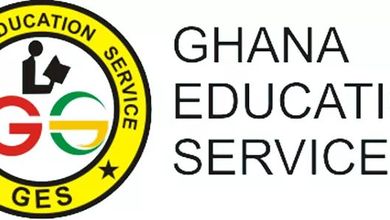2023 Approval of Budget and ongoing Negotiations of Salaries.
What does the approval of the 2023 budget mean for the ongoing negotiations between labour unions and government?
Are you lost, Yeah let’s try to put things together for you.
Mostly, Salary Negotiations take place before reading of budget for the Next Year, this time, that’s not what has happened.
The 2023 Budget has been read, by the Minister of Finance and after debate, has been approved by Parliament.
Budget Approval
Parliament has given approval to the 2023 Budget Statement and Economic Policy of Nana Addo Dankwa Akufo-Addo’s Government for the year ending 31st December, 2023.
The approval was given via a voice vote administered by the speaker, Alban Kingsford Sumana Bagbin on Tuesday December, 6th 2022, after each of the two leaders were given about 45 minutes to conclude their debates on the same day and of course the Minority Leader, Haruna Iddrisu has spoken heavily against some the new taxes proposed and reproduction old taxes like the toll both levies.
He kicked against the increase in the VAT rate by 2.5 and the review of the E-Levy from 1.5% to one percent (1%) of every transaction.
But the Majority leader Osei Kye-Mensah-Bonso refuted many of the claims made by the Minority and called for cool heads to prevail in order to support the finance minister and the Government to fully implement policy measures as captured in the budget to put the economy back on track.
Some of the measures the Minister has proposed include but not limited to boosting local productive capacity to restore the economy are to cut the imports of public sector institutions that rely on imports either for inputs or consumption by 50% and will work with the Ghana Audit Service and the Internal Audit Agency to ensure compliance; Support the aggressive production of strategic substitutes, including the list disclosed at the President’s last address to the nation;
Support large-scale agriculture and agribusiness interventions through the Development Bank Ghana and ADB Bank; introduce policies for the protection and incubation of newly formed domestic industries to allow them to make the goods produced here competitive for local consumption and also for exports.
He also proposed to promote exports by expanding production capacity in the real sector of the economy and actively encouraging the consumption of locally produced rice, poultry, vegetable oil and fruit juices, ceramic tiles among others.
He has in the 2023 budget to implement structural and public sector reform, by imposing a debt limit on non-concessional financing; Undertake major structural reforms in the Public Sector by reviewing the operations of 36 State-owned Enterprises, 8 Special Purpose Vehicles, 90 Joint Venture Companies, 38 Regulatory institutions, 68 Statutory Bodies and 6 Subvented Agencies;
Enforce compliance with the legal and regulatory framework on foreign exchange; Initiate measures to overhaul the tax structures in the extractive industry; Expand the gold purchase programme by the Bank of Ghana to support FX Reserve accumulation, promote an LBMA-certified gold refinery in Ghana and promote local currency stability.
”I am struggling to understand why parliament approved the budget knowing very well that the concerns of labour have not been incorporated”. Nii Tagoe
There is something called the Appropriation Bill, is a bill to set apart money for a specific purpose.
Appropriation Bill
The Parliament appropriates moneys from the Consolidated Revenue Fund on an annual basis in order to fund expenditure by the Government. Prior to 1999 the appropriation of funds by the annual appropriation bills expired at the end of the financial year. The annual appropriations, although related to activity in a specific year, no longer lapse at the end of the year—appropriations for departmental expenses are open ended, while appropriations for administered expenses are limited to expenses incurred in that year. Each annual appropriation Act now provides for the automatic repealing of itself prospectively.
Appropriation Bill (No. 1) is a key element in ‘the Budget’; it contains details of estimates for ordinary annual government services—that is, continuing expenditure by government agencies on services for existing policies.
Appropriation Bill (No. 2) is also introduced as part of the Budget and appropriates funds for new administered expenses; non-operating costs; and payments to the States
Appropriation (Parliamentary Departments) Bill, also introduced as part of the Budget, appropriates funds for the parliamentary departments.
Appropriation Bills (No. 3) and (No. 4) and Appropriation (Parliamentary Departments) Bill (No. 2) are referred to as the additional or supplementary estimates. Appropriation Bill (No. 3) appropriates funds for administrative expenses, while Appropriation Bill (No. 4) provides for capital expenditure—thus they parallel Appropriation Bills (No. 1) and (No. 2) respectively.[63] They are needed in order to meet requirements that have arisen since the passage of Appropriation Bills (No. 1) and (No. 2). The Appropriation (Parliamentary Departments) Bill (No. 2) performs the same function in respect of the parliamentary departments. Explanation purpose.
Sample of 2021 Appropriation in Ghana
2021 Appropriation (No. 2) Act, 2021 (Act 1074) for 2022It will be captured.
Read Also
21% Plus COLA ; Public sector workers Salary Negotiations
CCT-GH Affordable Housing Scheme for Teachers; Price, Location, Who can Apply.
NEW ; GES 2023 Academic Calendar For Schools
YOU CAN JOIN OUR TELEGRAM OR WHATSAPP OR FACEBOOK PAGES
HOME





